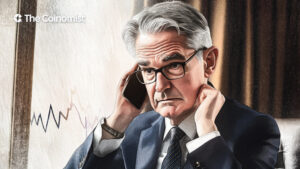PaxDollar: approved by Wall Street

Pax Dollar, or USDP, is one of the few stablecoins approved by American regulators. It’s collateralized 1:1 by the US dollar and is commonly used for cross-border payments.
Who is behind regulated stablecoin USDP?
Pax Dollar was launched by Paxos Trust Company, which currently holds a monopoly position in the development of regulated cryptocurrency products.
Charles Cascarilla, the founder of Paxos Trust Company, had previously co-owned Cedar Hill Capital Partners, one of the largest investment funds for government institutions. Paxos' board of directors includes the former US senator and the former chairwoman of the Federal Deposit Insurance Corporation (FDIC).
Pax Dollar was launched in 2018 and later rebranded as USDP in 2021. The company also launched PAXGold, a token pegged to physical gold, offering customers fractional ownership of this precious metal. What's more, itBit Exchange, a trading platform catering to institutional investors, was opened and is personally supervised by the New York Department of Financial Services (NYDFS).
The company holds the exclusive rights to issue the BUSD token, which is utilized on the popular Binance platform.
Paxos Trust Company has a diverse range of clients:
- PayPal
- Bank of America
- Credit Suisse
- Revolut
- Mastercard
- StoneX
It is not surprising to the crypto community that regulatory authorities are backing the development team's efforts.
It goes without saying that personal connections have no influence on the matter. Paxos' smooth operation is simply attributed to the founders' good luck, as they deny rumors that the company is under the personal control of the NYDFS.
Pax Dollar tokenomics
Paxos Trust Company is the only organization that regulates the total supply of USDP, which is unlimited. However, new stablecoins are only released into circulation after fiat dollars are deposited into Paxos' bank accounts.
When USDP is converted back into cash, they are burned, which ensures a 1:1 price ratio.
The circulating supply always corresponds to the amount of US dollars held in the company's reserve.
(To learn more about the peculiarities of regulating the price of a cryptocurrency with an unlimited supply, click here.)
Every month, independent accounting firm Withum conducts an audit of Paxos' balances and publishes reports on the dollar reserves and the number of tokens in circulation. As of the time of writing, the maximum supply of USDP is 106,388,841, which is also the number of tokens circulating in the network.
However, it would be incorrect to claim that USDP is always firmly pegged to the US dollar. The financial market situation directly affects the Pax Dollar rate, and sometimes it depegs from its underlying asset.
For example, amid rumors that the SEC had launched an investigation into USDP, the coin lost almost 3% of its value. As a result, its market capitalization also decreased by the same amount.
However, USDP is not the only stablecoin that is sensitive to market turbulence. And when it comes to protection against volatility, USDP is indeed a high-quality asset for preserving value.
Pax Dollar prospects
The demand for regulator-approved Stablecoins from institutional investors is expected to increase as regulation extends to other aspects of the cryptocurrency industry.
Only government-backed digital currencies (CBDCs) have the potential to push them out of the market, but this is unlikely to happen anytime soon.
USDP is a reliable way for risk-averse investors to invest in cryptocurrency.
Pax Dollar may be a good hedge against inflation, but it is not the most popular stablecoin in the European and Asian markets.
However, American investors prefer USDP. It appears that Paxos Trust Company can maintain stability and address any disputes with the Securities and Exchange Commission. Therefore, its stablecoin is unlikely to suffer the same fate as Terra USD or Neutrino USD.
The content on The Coinomist is for informational purposes only and should not be interpreted as financial advice. While we strive to provide accurate and up-to-date information, we do not guarantee the accuracy, completeness, or reliability of any content. Neither we accept liability for any errors or omissions in the information provided or for any financial losses incurred as a result of relying on this information. Actions based on this content are at your own risk. Always do your own research and consult a professional. See our Terms, Privacy Policy, and Disclaimers for more details.

























